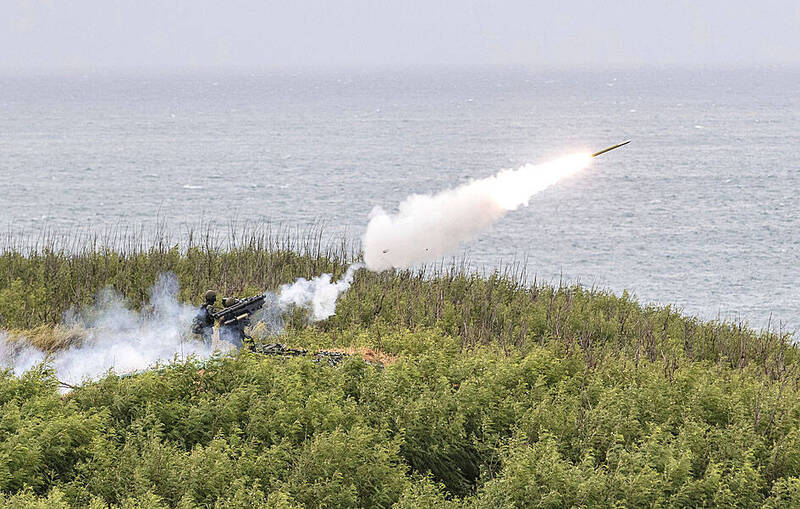Business
Taiwan Seeks Record US$33 Billion for Defense Against China

Taiwan’s Ministry of National Defense (MND) is planning to request up to a record US$33 billion in special funding to enhance the nation’s defense capabilities amid increasing military pressure from China. This proposal, outlined by Democratic Progressive Party (DPP) Legislator Wang Ting-yu, aims to establish a comprehensive defense system capable of countering potential threats.
The special budget, estimated to be between NT$800 billion and NT$1 trillion (approximately US$26.4 billion to US$33.1 billion) over a seven-year period, is still under negotiation. The final amount will depend on discussions with the United States regarding potential arms sales to Taiwan. Wang emphasized the importance of developing a robust defense infrastructure to safeguard the country.
Enhancing Air Defense and Technology Acquisition
Wang highlighted several key components of the defense strategy, including the integration of Taiwan’s air defense systems and the acquisition of advanced technologies from international partners. These enhancements aim to improve detection capabilities for small drones, rockets, and missiles, facilitating a swift response to any attacks.
“China is developing their fifth-generation fighters and employing stealth technology in various drones and missiles,” Wang stated, underscoring the urgency of upgrading Taiwan’s sensor and radar systems. Without effective detection mechanisms, he argued, Taiwan’s military capabilities would be severely compromised.
The call for increased funding comes as Taiwan’s government, led by President William Lai, announced plans to raise next year’s defense budget to NT$949.5 billion, which is more than 3 percent of the nation’s GDP. The goal is to escalate defense spending to 5 percent of GDP by 2030.
Political Support and Challenges Ahead
Should the Cabinet endorse this special defense budget proposal, it will require approval from the opposition-controlled legislature before implementation. Wang expressed hope that opposition parties would support the initiative, framing it as critical for Taiwan’s survival amid rising tensions.
Chinese Nationalist Party (KMT) Legislator Huang Jen, co-chair of the Foreign Affairs and National Defense Committee, acknowledged the necessity for a thorough discussion if the budget is submitted. “We understand the enemy threat and pressure from the US, but given limited resources, the key is how to spend money effectively,” Huang remarked.
Researcher Su Tzu-yun from the state-run Institute for National Defense and Security Research emphasized the urgent need to bolster Taiwan’s air defenses. He pointed out that China currently patrols the waters around Taiwan with approximately eight warships, each capable of launching over 500 cruise missiles. This situation poses a significant threat, potentially allowing for surprise attacks that could reach critical military facilities within minutes.
As Taiwan navigates these challenging dynamics, the proposed funding increase reflects a strategic response to the evolving security landscape in the region. The outcome of the negotiations with the United States, along with the legislature’s response, will play a crucial role in shaping Taiwan’s defense posture in the coming years.
-

 Business5 months ago
Business5 months agoKenvue Dismisses CEO Thibaut Mongon as Strategic Review Advances
-

 Lifestyle4 months ago
Lifestyle4 months agoHumanism Camp Engages 250 Youths in Summer Fest 2025
-

 Sports4 months ago
Sports4 months agoDe Minaur Triumphs at Washington Open After Thrilling Comeback
-

 Sports5 months ago
Sports5 months agoTupou and Daugunu Join First Nations Squad for Lions Clash
-

 Top Stories5 months ago
Top Stories5 months agoColombian Senator Miguel Uribe Shows Signs of Recovery After Attack
-

 World5 months ago
World5 months agoASEAN Gears Up for Historic Joint Meeting of Foreign and Economic Ministers
-

 Health4 months ago
Health4 months agoNew Study Challenges Assumptions About Aging and Inflammation
-

 Business5 months ago
Business5 months agoOil Prices Surge Following New EU Sanctions on Russia
-

 Entertainment4 months ago
Entertainment4 months agoDetaşe-Sabah Violin Ensemble Captivates at Gabala Music Festival
-

 Entertainment4 months ago
Entertainment4 months agoBaku Metro Extends Hours for Justin Timberlake Concert
-

 Top Stories5 months ago
Top Stories5 months agoRethinking Singapore’s F&B Regulations Amid Business Closures
-

 Business5 months ago
Business5 months agoU.S. House Approves Stablecoin Bill, Sends to Trump for Signature









